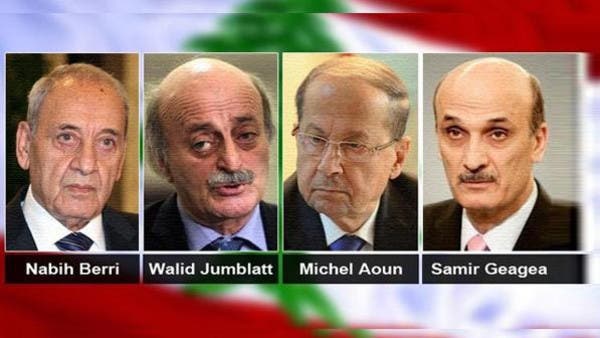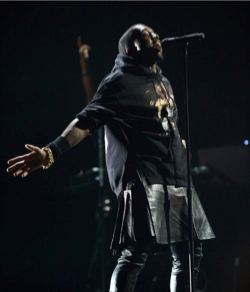Lebanese Man Despairs for His Country
January 23, 2021

Lebanon is suffering from political corruption & gridlock, a banking and debt crisis, and a simulated pandemic
that is crippling the economy.
"Time is running out to address this culmination of simultaneous ordeals. Barring an unforeseen development, a tipping point is fast approaching. I am sad to say, darker days lie ahead."
Ron, 36 has BS in Computer Science. He had a stint in journalism in early career and is now an administrator.
by Ron
(henrymakow.com)
Unfortunately, the situation in Lebanon keeps getting worse and is now coming to a head as longstanding problems and new challenges converge.
We, the Lebanese people have been taken hostage by a group of warlords-turned-politicians who were handed the keys of the country in 1990 on the heels of a bloody 15-year civil war.
The delicate political system imposed after the civil war consists of a diverse sectarian power-sharing between 18 Christians, Muslims and Druze recognized sects. This formula of religiously-based, fragile governance has since maintained uneasy peace but does repeatedly flare up as it engenders volatility and socio-economic inequality.
The system is rife in bribery, cronyism, favoritism, patronage, and vote-buying. It has allowed the ruling establishment to use sectarian conflict as a cover for socioeconomic disparities and justification of their constant bickering.

Main political figures are Michel Aoun, Christian previous Commander of the army and current president of the republic; Saad al-Hariri, son of assassinated Sunni leader Rafik al-Hariri and former prime minister; Hassan Nasrallah, head of Shiite party Hezbollah, the most powerful - and only publicly armed - group in the country; Nabih Berri, leader of Shiite civil war militia Amal Movement and current speaker of parliament; Walid Jumblatt, former Druze militia commander and head of the Progressive Socialist Party; Samir Geagea, Christian politician and leader of the Lebanese Forces, another former civil war militia.
An ever-worsening economic crisis pushed people of all sectarian affiliations to take to the streets in October 2019 to the surprise of the ruling elite. We would protest corruption, lack of reforms, huge sovereign debt, deficits in the budget and current account and run-down infrastructure.
The effects of poor public services, skyrocketing unemployment rates, worsening poverty, high inflation rates and a continued brain drain have spared no one. I personally have long lost faith in any prospect of change and have been living and working abroad since 2010.
To make matters worse, foreign exchange reserves at the Lebanese Central Bank are currently depleted and unregulated capital control measures by banks are firmly in place. Like hundreds of thousands of other compatriots, our hard-earned savings are now up in the air.

EXPLOSION
The Beirut port massive blast last August left us all traumatized. Little less than three thousand tons of mysteriously stored ammonium nitrate exploded. Feelings of despair as a result can be sensed every time I communicate with connections back home. The explosion wreaked havoc across half the city, left more than 200 people dead, 5,000 injured and several others missing, while leaving an estimated number of 300,000 people homeless.
Many - myself included - believe there is much more into the catastrophe than mismanagement or negligence on the part of authorities or port workers. With the investigation going nowhere, rumors of the stored material being linked to the Syrian war next door have been swirling since.
The government resigned following the blast but competing political factions have yet to form a new government. Boasting different local agendas and conflicting regional ties, they are letting their apparent disagreements over the sharing of powers and interpretation of the constitution stand in the way. We are left yet again to wait indefinitely.
COVID
Then there is the globalist's COVID-19 pandemic. Unlike the vast majority of countries that imposed tight restrictions on end-of-year festivities, Lebanon elected to lift most measures ahead of the holidays in a bid to attract Lebanese living abroad and bolster the decaying economy.
When home for the holidays, I witnessed firsthand how social distancing measures were anything but respected by most. Not unexpectedly, the country is now facing a dramatic spike in infections with related death cases increasing more than tenfold as compared to last summer.
Lebanese hospitals are struggling to cope with the surge in infections. I hear daily stories about people being denied admission due to fully-occupied beds. The 11-day full-scale curfew now in force is a belated attempt by the caretaker government to ease the pressure on the overwhelmed health system.
Stats are according to Ministry of Health data. There is no credible tracker of flu cases, but I wouldn't rule out official count combining people who die with/of the virus. State is taking advantage of the situation to prevent street movements.
Efforts to procure vaccines - touted by officials to spare lives - are hamstrung by bureaucratic delays and outdated laws. And with the first shipment not expected before mid-February, one can only imagine the scale of the damage that will have been inflicted in the meantime. From what I am gathering from relatives and friends, no one is sure how longer people can survive.

Curfew and movement restrictions are making an already tenuous economic situation worse. With job losses mounting, households depending on unstable income sources are increasingly unable to keep up. As the government is doing nothing to help the population cope financially while business activity is halted, it is expected that protests erupt again on the streets with distressed people willing to sacrifice health for subsistence.
To top it all off, not only does a majority deeply mistrust the political class. So do international institutions and donors. No financial support will be made available unless drastic - and surely unpopular - reforms are carried forward by the ever-delayed formation of a new government.
---






